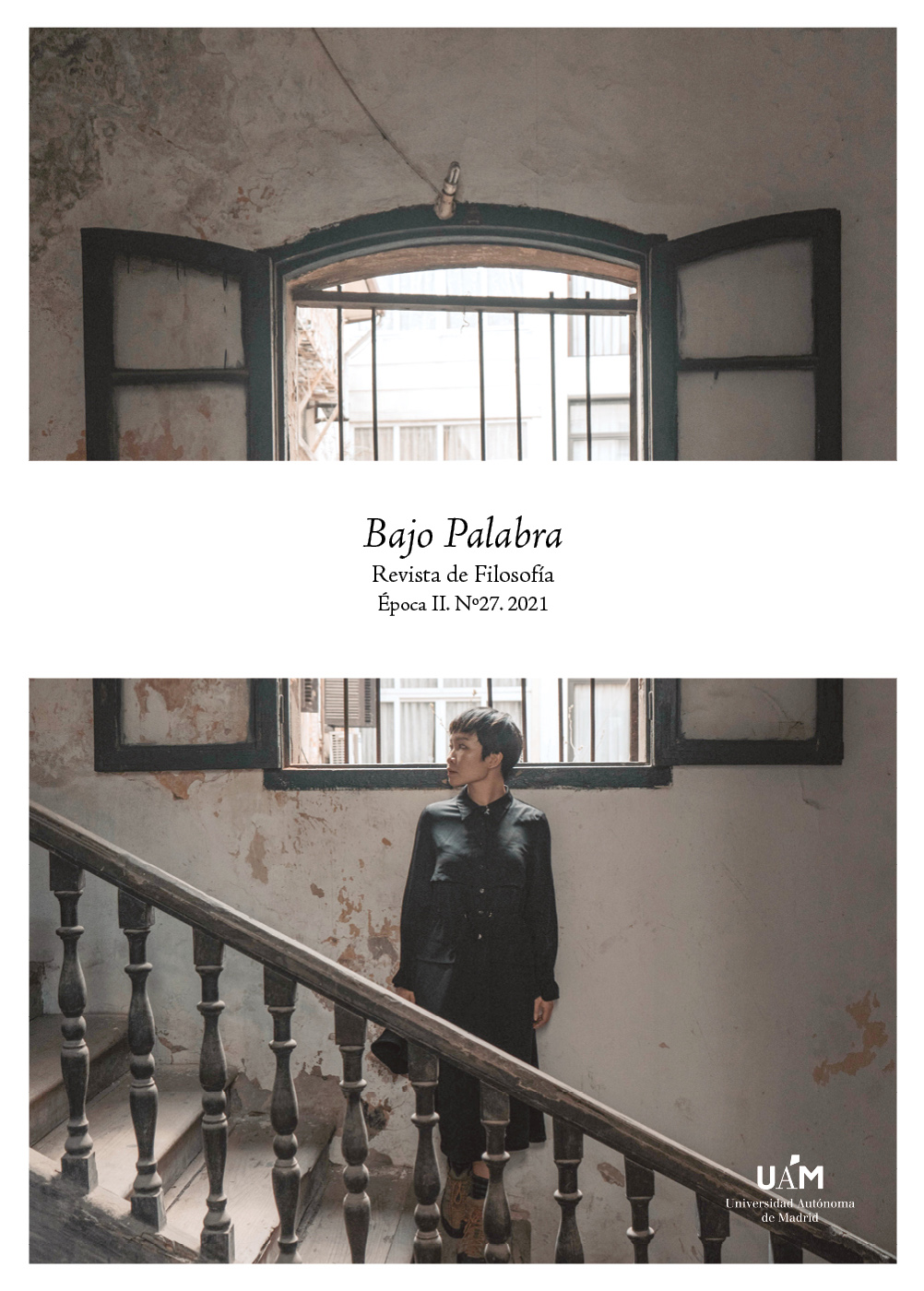La Mujer nueva. Aportaciones de las feministas socialistas a los debates morales y políticos del siglo XXI
Palabras clave:
Mujer-nueva, feminismo, socialismo, interseccionalidad, filosofía-moral-políticaDerechos de autor 2021 María Ávila Bravo-Villasante, Eva Palomo Cermeño

Esta obra está bajo una licencia internacional Creative Commons Atribución 4.0.
Resumen
Las ideas en torno a la Mujer nueva marcaron los debates acerca del género y la clase, el feminismo y el socialismo, durante el siglo XIX y principios del XX. En el presente trabajo se revisan y analizan las aportaciones de diversas autoras pertenecientes a la tradición del feminismo socialista, como son Anna Wheeler, Clara Zetkin, Alexandra Kollontai o Sylvia Pankhurst. Se trata de establecer un diálogo presente-pasado en torno a los retos morales y políticos que presentan al feminismo las sociedades contemporáneas.
Descargas
Citas
Al-Sadawi, Nawal (1991). La cara oculta de la mujer árabe, Madrid: Horas y horas.
Amorós, Celia (2010). “Feminismo y Multiculturalismo”, en Celia Amorós y Ana de Miguel (Eds.), Teoría feminista: de la Ilustración a la globalización, T. 3, Madrid: Minerva Ediciones.
Arruza, Cinzia; Bhattacharya, Tithi y Fraser, Nancy (2019). Manifiesto de un feminismo para el 99%. Barcelona: Herder editorial.
Ávila Bravo-Villasante, María (2019). La máquina reaccionaria. La lucha declarada a los feminismos, Valencia: Tirant Humanidades.
Burton, Antoinette (1991). “The feminist quest for identity; British Imperial Suffragism and Global Sisterhood 1900-1915”, Journal of Women’s History, vol. 3, nº 2. https://doi.org/10.1353/jowh.2010.0098
Crenshaw, Kimberlé (1989). “Demarginalizing the Intersection of Race and Sex: A Black Feminist Critique of Antidiscrimination Doctrine, Feminist Theory and Antiracist Politics”, University of Chicago Legal Forum, 1, pp. 139-167.
Davis, Angela Y. (2004). Mujeres, raza y clase, Madrid: Akal.
De Miguel Álvarez, Ana (2010). “La articulación del feminismo y el socialismo: el conflicto clase-género” en Celia Amorós y Ana de Miguel (Eds.), Teoría feminista: de la Ilustración a la globalización, T. 1, Madrid: Minerva Ediciones.
De Miguel Álvarez, Ana (2012). “La prostitución de mujeres, una escuela de desigualdad humana” en Revista Europea de Derechos Fundamentales, Nu?m.,19 1er Semestre 201, pp., 49 – 74.
Femenías, María Luisa (2010). “El Feminismo Postcolonial y sus límites”, en Celia Amorós y Ana de Miguel (Eds.), Teoría feminista: de la Ilustración a la globalización, T. 3, Madrid: Minerva Ediciones.
Kollontai, Alejandra (1976). Marxismo y Revolución Sexual. Madrid: Castellote.
Mars, Amanda (15/12/2019). “Charlene A. Carruthers. ‘Acabar con el capitalismo es un asunto feminista’”, El País. Disponible en https://elpais.com/elpais/2019/12/13/ideas/1576257797_678594.html
Mohanty, Chandra (1998). “‘Under Western Eyes’: Feminist Scholarship and Colonial Discourse”, Feminist Review, 30 (Autumn), pp. 61-88. https://doi.org/10.1057/fr.1988.42
Palomo, Eva (2015). Sylvia Pankhurst. Sufragista y socialista, Castilla-La Mancha: Almud.
Pankhurst, Sylvia (1926). India and the Earthly Paradise, Bombay: Sunshine Publishing House.
Roldán Panadero, Concha (2003), “¿Quién le cuelga la responsabilidad a la justicia?” Lectora: revista de dones i textualitat, nº. 9, págs. 45-56; Disponible en: https://www.researchgate.net/publication/49112354_Quien_le_cuelga_la_responsabilidad_a_la_justicia
Thompson, William y Wheeler, Anna (2000). La demanda de la mitad de la raza humana, las mujeres contra la pretensión de la otra mitad los hombres, de mantenerlas en la esclavitud política y, en consecuencia, civil y doméstica. Granada: Comares.
Valcárcel, Amelia (2002). Ética para un mundo global. Una apuesta por el humanismo frente al fanatismo, Madrid: Temas de hoy.
Waithe, M. Ellen (1991). History of Women Philosophers. Vol. III. Dordrecht: Kluwer Academic Publishers. https://doi.org/10.1007/978-94-011-3790-4
Zetkin, Clara (1976). La cuestión femenina y el reformismo. Barcelona: Anagrama.
